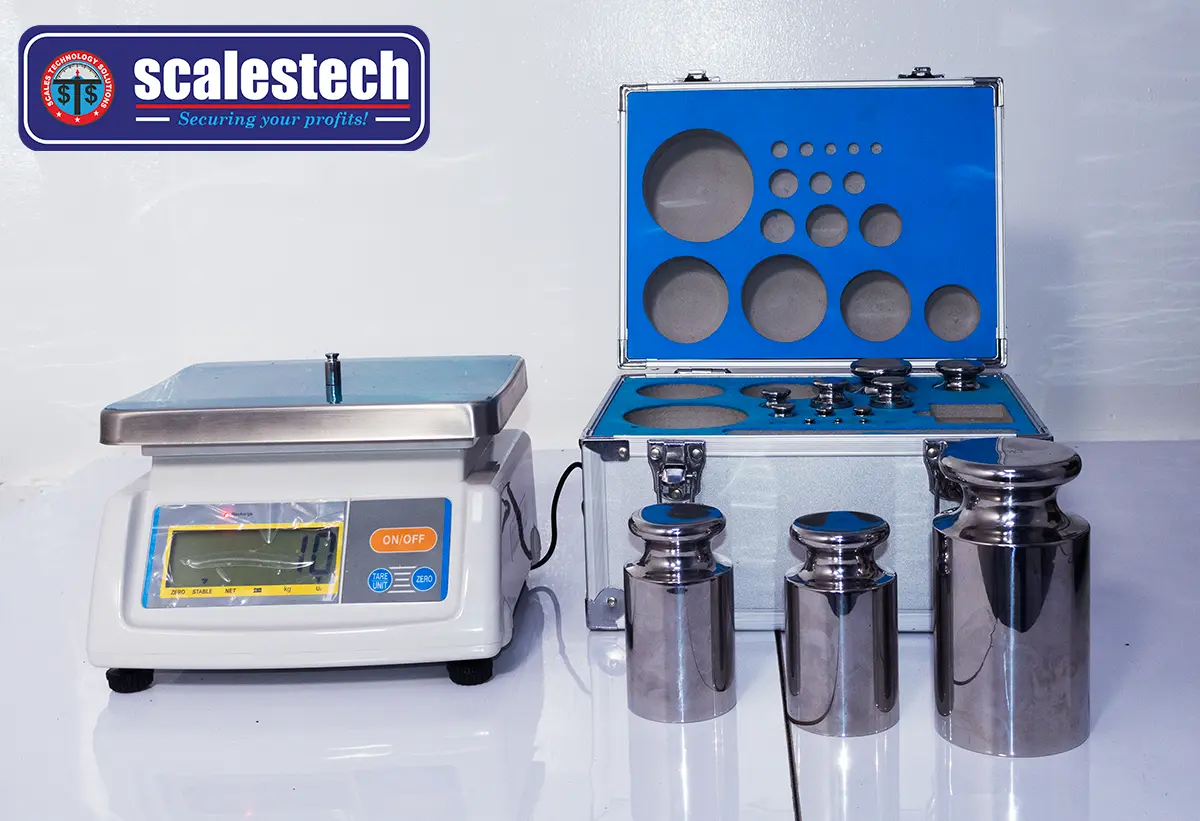Digital weighing scales are precise instruments that require proper handling to ensure accurate results. Here are some essential dos and don'ts to follow, to promote accuracy and longevity:
Digital weighing scales are precise instruments that require proper handling to ensure accurate results. Here are some essential dos and don'ts to follow, to promote accuracy and longevity:
Dos:
- Calibrate regularly: Always calibrate your scale according to the manufacturer's instructions. This ensures accurate readings when the scale is put to use. Reach out to
Scales Technology for your calibration needs. - Avoid overloading: Never exceed the scale's maximum capacity to prevent damage. Always use the right scale for the job, for instance, the industrial weighing scale that weighs up to 300kg.
- Level the scale: Ensure the scale is placed on a level surface to avoid inaccurate readings during measurements.
- Regular Cleaning: Strive to keep the scale clean and free of debris to prevent interference.
- Handle with care: Avoid dropping or bumping the scale, as this can damage the internal components. Handle the scale gently during and after use.
- Follow manufacturer's instructions: Always refer to the manufacturer's manual for specific usage guidelines. When in doubt, you can always consult your service provider. At Scalestech, we offer 24-hour customer service as well as aftersales services.
- Use appropriate units: Set your weighing scale to the correct units of measurement (e.g., grams, kilograms, pounds).
Don'ts:
Now that we have covered the best ways to handle your digital weighing scale, let us take a look at what not to do, for best results.
- Place heavy objects directly on the scale: Use a suitable platform or tray to distribute the weight evenly. For the pallet scale, for instance, ensure to use an appropriate pallet.
- Expose the scale to extreme temperatures: Avoid placing the scale under direct sunlight or near heat sources to prevent damage.
- Place the scale on a vibrating surface: This is because vibrations can interfere with the scale's accuracy.
- Use the scale for non-weight measurements: The scale is designed for measuring weight only.
- Ignore battery warnings: Replace batteries promptly when they start to run low, for optimum output.
By following these guidelines, you can promote the accuracy and longevity of your digital weighing scale. Visit Scales Technology Solutions along Bunyala road in Nairobi for all your weighing needs.
